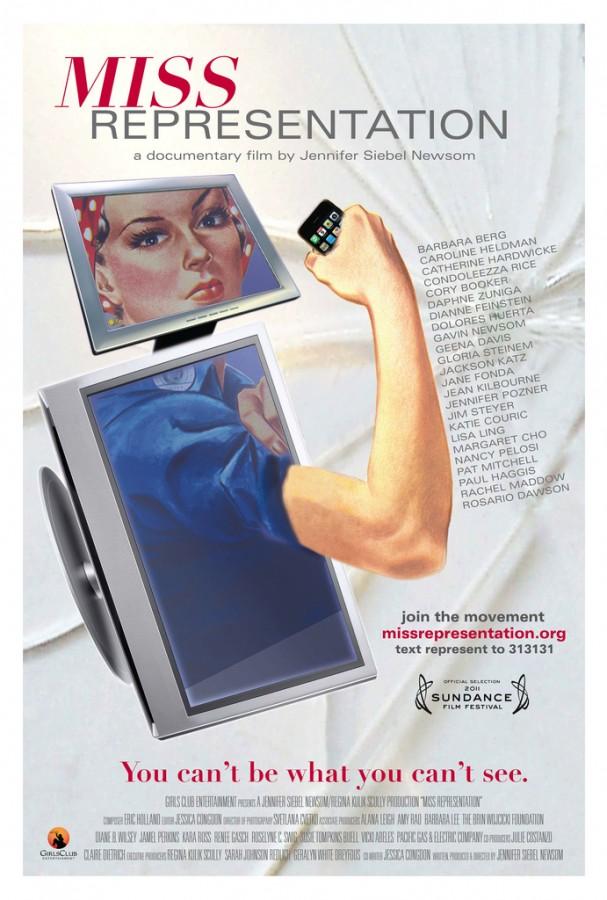“If I want to knock a story off the front page, I just change my hairstyle.” -Hillary Clinton
According to the documentary “Miss Representation,” in one week American teenagers spend 31 hours watching television, 17 hours listening to music, 3 hours watching movies, 4 hours reading magazines and 10 hours online. That is 10 hours and 45 minutes of media consumption a day. “Miss Representation” explores the role the media plays on a woman’s self-esteem, revealing the negative effects and double standards attributed to the portrayal of women in media.
In most movies, women are not displayed in realistic ways. They are either damsels in distress or sexual objects. The way these women are shown in movies or television leak into reality and suddenly these “women” are considered the norm. “Miss Representation” studies the effects these norms have on young women, showing that value of women is based on appearance rather than leadership or intelligence qualities. This documentary throws shocking and disturbing numbers at its viewers, including that 53 percent of 13-year-old girls are unhappy with their bodies, and that number rises to 78 percent in the next four years of their lives. Another statistic from the film shows that 65 percent of women and girls have an eating disorder and rates of depression among girls have doubled between 2000 and 2010. Are these really the statistics the future generation of women and girls should fit into? I think not.
Because women are regarded not for their intelligence or dedication, but rather on their sex appeal, women are starting to view themselves based on their physical image. They view themselves as objects rather than people when the media portrays them that way. This is proven in this documentary, which shows that women are losing their voice in politics– women make up only 17 percent of Congress and only 34 women have served as state governors, compared to 2,319 men who served. The concern that this documentary heightens is that media is so powerful and pervasive; the media has used this power to completely undermine women’s self-esteem and their desire and ability to obtain power as legitimate political leaders.
However, all is not doomed for women in the media and politics. Strong, smart and well-spoken women like Tina Fey, Amy Poehler, Lena Dunham, Hillary Clinton, Madeleine Albright, Condoleezza Rice and Rachel Maddow continue to portray women in a positive light. They write and speak out for women in creative ways. Tina Fey and Amy Poehler cleared a path for women in comedy through both of their award-winning shows. Lena Dunham put a new face on youthful women with her show “Girls” on HBO, showing flawed and fallible women. Hillary Clinton ran for President in 2008 along with Madeleine Albright and Condoleezza Rice, as serving as the women Secretaries of State. Rachel Maddow hosts her own show on MSNBC, speaking out about various issues regarding politics or world affairs, never holding back or showing remorse. The problem is, however, the media does not view these women as highly as they view sex symbols like Megan Fox. The general public must push the media to appreciate strong and independent women, rather than over-sexualized eye candy.
“Miss Representation” brings to light the priorities the media has including sex and degradation. These priorities should not be the priorities of women. Women should define their own priorities, whether those priorities are power, strength, wisdom or care for the world.








